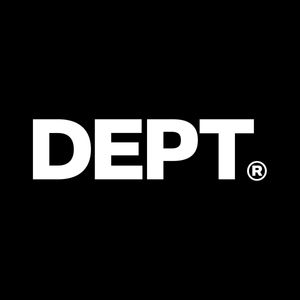
The Digital Opportunities Offered by the Fintech Sector

Going to a physical bank to take care of your finances used to be a routine for many people. Something they would do on a frequent basis to ensure everything was in order. Yet for many of us, that routine is a memory of past times. Financial services are rapidly evolving and reflect the current technological developments our society is experiencing. This offers many opportunities when it comes to financial products, from what they are to what you can do with them.
Contactless Payment
With the arrival of internet banking, physical banks gradually became superfluous. At the same time, many societies – especially in Asia – are now moving towards a cashless customer existence. In South Korea and China, mobile payments have become so common that paying with cash is almost unheard of, even amongst beggars, street performers and taxi drivers. Contactless payment is now available on your phone, meaning you don’t even have to carry a wallet with you anymore. This is quite handy given that many of us forget our wallet far more frequently than our phones.
Consumers want transparency and integrity
People’s trust in the centralised banking system has been damaged by various scandals and integrity issues. Partly because of this, decentralised payments (payments which don’t go through a bank) are gaining in popularity. The large number of new digital currencies that are constantly emerging showcase this. For example, we are all familiar with cryptocurrencies such as Bitcoin, even though it isn’t used as a mainstream payment method. Now, even Facebook is working on its own global cryptocurrency, Libra, which should go live in 2020. They have also announced Facebook Pay which would allow users to make payments in apps such as Instagram and Facebook. This development could complement the adoption of its cryptocurrency.
Trust is key and the demand for transparency affects all industries, this includes banks and insurance companies. For many of us, choosing the right insurance can be difficult due to specific conditions and small print, leaving you to wonder what exactly your insurance does. Now, many comparison tools exist which helps consumers sort through their options when deciding which company best matches their needs. But confusion and uncertainty remain a big problem. This opens up opportunities for insurers who continue to make this an easy process for people.
Everything for the best user experience
Since January 13th, 2018, every bank in the European Union is required, according to Payment Services Directive 2, to let customers give third-parties access to their checking accounts. Among other things, this means users can now connect their bank account information to an application other than their main banking app, simply because another interface is more user-friendly. You can compare this to using an external email interface, such as Spark, to manage your Gmail account. Startups use the possibility of decentralised payment to offer better solutions. After all, switching banks for a better user-experience is more difficult than simply switching interfaces for everyday banking needs. Established banks understand that this is not without risks. Therefore, many banks are partnering with startups to create better interfaces to ensure they maintain the sole point of contact they have with customers.
One example of this in practice is the Dutch insurance TVM which partnered with a startup to make reporting car damage simpler for its customers. This led to the creation of ‘Bumper’, which uses smartphones to speed up the claim process. It utilises your phone’s camera to submit damage costs and estimate repair costs, GPS to see where you are and communicates all of this via WhatsApp. Thus deleting long wait times and multiple emails worth of explanation.
Technological Revolution
As you know, the tech industry is moving forward at a rapid pace. This leads to non-traditional financial companies, such as supermarkets, to take advantage of the opportunities offered by financial services. Thanks to smartphone payments or payments via facial recognition, cashless stores are popping up across the globe and will quickly become indispensable. Amazon Go is a good example of a grocery store which utilises all of these technologies. In addition, technology giant Apple has introduced the Apple Card. This is a new type of credit card that connects to an iPhone user's Wallet app and can appear as a standard option when people use Apple Pay. When these options become widely adopted and ‘biometric mobile wallets’ gain popularity, this will lead more companies to jump into the playing field to get a foothold in that market.
Less human contact but still more opportunities
These technological developments mean that there’s less and less human contact between brands and their customers. People no longer see money, vouchers or receipts as something tangible. Instead, paying is simply a glance or tap on your phone. However, there is some associated risk to this since, if you no longer have to think about money, things can go wrong. A purchase that you actually didn’t mean to make is just the tip of the iceberg. That’s why the attention in more advanced economies will be focused on offering financial assistance (personal finance) via smart apps for example.
A large number of players are already offering personal financial assistance and many startups are taking advantage of this growing demand. For example, the app called Cleo, which is an AI-driven assistant who’s conversational interface can help you keep your personal finances in order. For example, the app will let you know your average consumption, if you have money to go out tonight, and can help you meet your budget goals. Thanks to its gamification elements and humorous responses, the app has a unique identity, making personal banking fun for users.
It's all about seizing opportunities
Consumers are demanding for the financial sector to be a bit simpler to navigate. And this goes from hassle-free payment options to optimal user experience on banking apps and everything in between. Both startups, banks and non-financial institutions can take advantage of the opportunities the financial market holds to offer users simple solutions which makes navigating this field a bit more fun.
Want to know more about digital transformation in the financial sector? Dept will be hosting a Finance Day on March 5th in Amsterdam.













